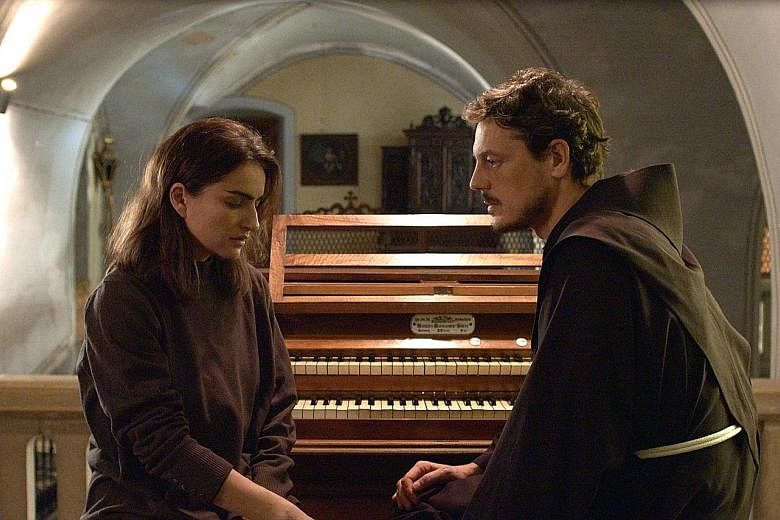"You are orthodox," says someone to classical pianist Naomi in the 2016 Israeli drama A Quiet Heart.
Naomi (played by Ania Bukstein), appears to be a liberal, secular Israeli on the surface. She is nonetheless a prisoner of faith.
In spite of trying, she feels sinful deviating from the text laid down "by the holy trinity of Bach, Mozart and Beethoven", in the words of film-maker Eitan Anner.
Speaking to The Straits Times on the telephone from his office in Tel Aviv, Anner, 48, talks about the circles of orthodoxy in the film he wrote and directed. The opening film of the ongoing 25th Israel Film Festival, it will get a second screening on Sept 1.
Naomi moves to Jerusalem from Tel Aviv to deal with a personal crisis. She finds an apartment with cheap rent, but there is a reason for it: It is located in a zone settled by ultra-Orthodox Jews, some of whom harass, threaten and bully her.
Bukstein, who has guest-starred on HBO's Game Of Thrones, was nominated for a Best Actress award for her role by the Israeli Film Academy, while Anner's screenplay won the Script Award at the Haifa International Film Festival.
Anner is fascinated by Jerusalem, the city of his birth, because it is at once a place frozen in time, but also where demographic changes are happening.
-
BOOK IT / 25TH ISRAEL FILM FESTIVAL
-
WHERE: The Projector, Level 5, Golden Mile Tower, 6001 Beach Road
WHEN: Till Sept 2
ADMISSION: $13.50
INFO: theprojector.sg
"I left it 20 years ago. I went to a reunion for my elementary school class and found that out of 35 of us, 33 had left," he says.
He had also heard, in a "water cooler conversation", about a woman who was forced to leave the city because of anonymous threatening letters. Someone had been offended that she, a Jew, had been studying the pipe organ, an instrument associated with Christians.
Israel's capital city is significant to three major religions, so decisions to modernise infrastructure are mired in debate and controversy.
"Take a wrong step, and you step on someone's toes. Everything is so symbolic," he says.
In 2001, development began on a high-speed train line between Tel Aviv and Jerusalem. Today, it has yet to be completed because of financial, environmental and political difficulties. It is due to be ready next year.
"We are still using rails laid down during the British Mandate," he says of the system installed in the early part of the 20th century, before Israel declared independence in 1948.
And while the ultra-Orthodox live apart, they do interact with the larger secular community.
"The walls are more imaginary than real," says Anner, explaining how he fleshed out details of his characters' lives
"It was not a big deal to do research into their way of life."
There is an advantage in making films in an ancient city that is a global cultural magnet, however. Residents and pedestrians are blase when film crews show up. Shooting on locations around Jerusalem, even in ultra-Orthodox neighbourhoods, never required crowd control.
"No one makes a big deal about a camera. Everything goes on as usual. We never had to stop traffic or ask anyone to be quiet."


